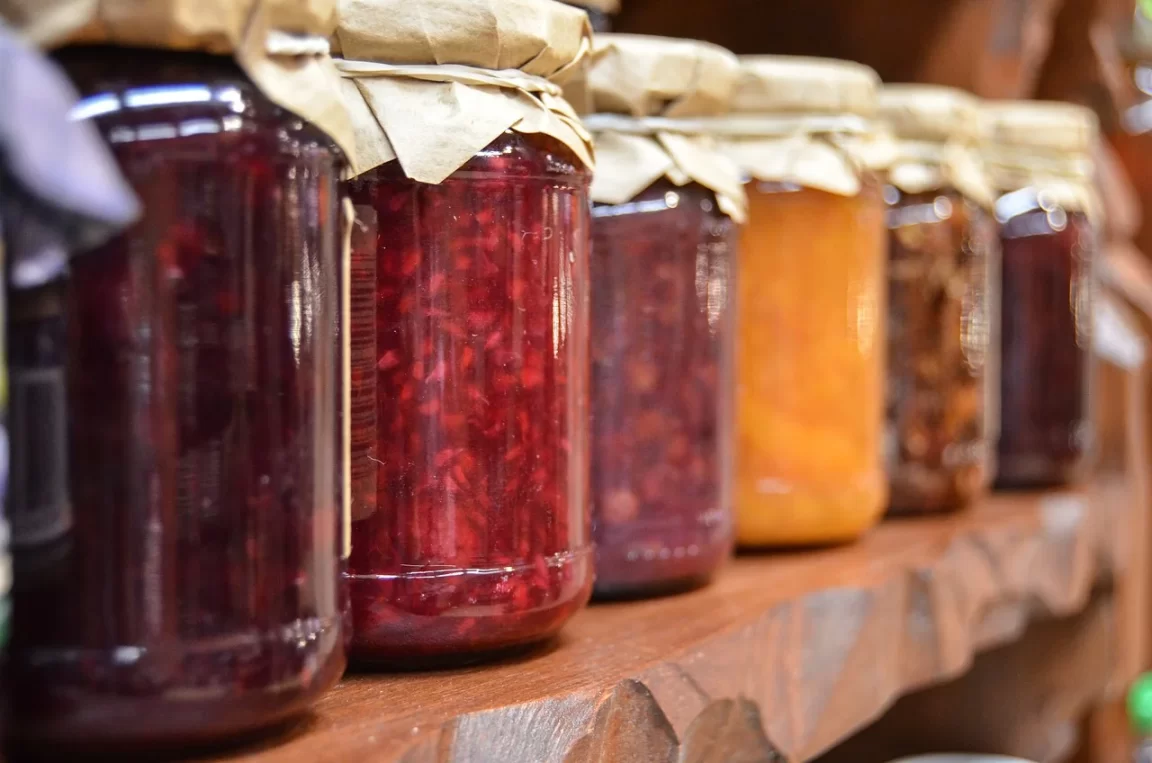Have you ever wondered which foods you should not refrigerate? It’s more common than you may think! In this blog post, we’ll cover 8 surprising foods that don’t belong in the fridge. Yes, that’s right – Foods You Should Not Refrigerate! Keep reading to find out what these are
and why you shouldn’t put them in the fridge.
1. Bread

When it comes to food storage, the refrigerator is usually the go-to option. However, some foods do not benefit from being stored in the refrigerator,
and bread is one of them. The cold temperature of a refrigerator can dry out bread, making it stale and hard faster. If you want your bread to stay fresh
longer, store it in a paper bag or wrap it in a clean kitchen towel and leave it at room temperature. To freeze bread for later use, slice it first before freezing it.
This will make it easier to thaw and will prevent large chunks from becoming overly dry.
2. Honey

Honey is a naturally sweet, sticky substance produced by bees. It’s packed full of flavor and has a variety of uses, from being spread on toast to used in cocktails and baked goods. However, many people mistakenly believe that honey should be kept in the refrigerator. This couldn’t be further from the truth! Refrigerating honey can cause it to crystallize, making it difficult to spread.
The best way to store honey is in a cool, dark place. To keep it at an optimal consistency, store it in an airtight container and keep it away from direct
sunlight. If the honey crystallizes over time, you can easily return it to its liquid form by placing the container in warm water and stirring until the crystals
dissolve.
3. Hot Sauce

Hot sauce is a condiment that many people love to keep around in the kitchen, but it should not be stored in the refrigerator. The refrigerator can cause
the hot sauce to lose its flavor, as well as make it go bad faster. It’s best to store it at room temperature, where it can last for up to 2 years. Additionally,
because of its acidic nature, it can corrode metal over time, so if you do store it in the fridge, make sure to use a plastic or glass container. For optimal flavor,
try to consume your hot sauce within 6 months of opening it.
4. Coffee

One of the foods you might not expect to not belong in the fridge is coffee. It’s important to store your coffee in a dry, cool place. Refrigerating coffee beans
or grounds can cause them to become dry, stale, and lose flavor quickly. If you have opened a bag of coffee, make sure it is sealed tightly and stored in
an airtight container. If your coffee beans or grounds are exposed to too much air or moisture, they can go bad quickly. The best way to store your coffee
is in an airtight container at room temperature.
5. Tomatoes

Tomatoes are a summertime staple, and it can be tempting to store them in the refrigerator. However, refrigerating tomatoes is a big mistake! Cold
temperatures damage the cell walls of tomatoes, resulting in a mealy texture and off-flavor. Instead of refrigerating tomatoes, store them at room temperature
out of direct sunlight. This will help keep them firm and ripe. When tomatoes are ready to eat, place them in the refrigerator for a short time to bring
out their flavor and juiciness.
6. Onions

Onions are a versatile ingredient that adds flavor to many dishes. However, they should not be refrigerated, as this can cause them to become limp and
spoil quickly. Instead, store them in a cool, dry place away from direct sunlight. The refrigerator is too moist for onions and can cause them to rot or sprout
prematurely. To maximize their shelf life, store onions in a mesh or paper bag in a dark, well-ventilated area such as a pantry or cabinet. It’s also important
to keep them away from potatoes, as the moisture from the potatoes will cause the onions to spoil faster.
7. Potatoes

Potatoes are an essential part of many meals, and most of us have grown up storing them in the refrigerator. However, cold temperatures will break down
the starch in potatoes and turn them into sugar, making them taste unpleasant when cooked. The best place to store potatoes is a cool, dark, and
well-ventilated area, such as a kitchen cabinet or pantry. Storing potatoes in a paper bag or cardboard box will help keep them away from light and also
help them to stay cool. If you must store potatoes in the refrigerator, put them in the warmest part of the fridge (not the door) and use them within a few
days.
8. Melons

When it comes to melons, you should never refrigerate them. Melons like watermelon, cantaloupe, and honeydew are best kept out on the counter or in a
cool, dark pantry. Refrigerating melons can cause them to lose flavor and texture, resulting in a lackluster taste. To keep melons fresh for longer, make
sure to store them at room temperature away from direct sunlight. Be sure to check for any soft spots and discard any overly ripe melons.




